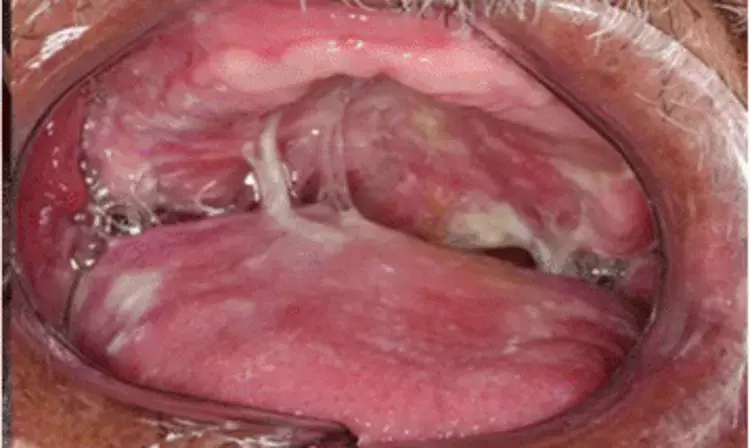- Home
- Medical news & Guidelines
- Anesthesiology
- Cardiology and CTVS
- Critical Care
- Dentistry
- Dermatology
- Diabetes and Endocrinology
- ENT
- Gastroenterology
- Medicine
- Nephrology
- Neurology
- Obstretics-Gynaecology
- Oncology
- Ophthalmology
- Orthopaedics
- Pediatrics-Neonatology
- Psychiatry
- Pulmonology
- Radiology
- Surgery
- Urology
- Laboratory Medicine
- Diet
- Nursing
- Paramedical
- Physiotherapy
- Health news
- Fact Check
- Bone Health Fact Check
- Brain Health Fact Check
- Cancer Related Fact Check
- Child Care Fact Check
- Dental and oral health fact check
- Diabetes and metabolic health fact check
- Diet and Nutrition Fact Check
- Eye and ENT Care Fact Check
- Fitness fact check
- Gut health fact check
- Heart health fact check
- Kidney health fact check
- Medical education fact check
- Men's health fact check
- Respiratory fact check
- Skin and hair care fact check
- Vaccine and Immunization fact check
- Women's health fact check
- AYUSH
- State News
- Andaman and Nicobar Islands
- Andhra Pradesh
- Arunachal Pradesh
- Assam
- Bihar
- Chandigarh
- Chattisgarh
- Dadra and Nagar Haveli
- Daman and Diu
- Delhi
- Goa
- Gujarat
- Haryana
- Himachal Pradesh
- Jammu & Kashmir
- Jharkhand
- Karnataka
- Kerala
- Ladakh
- Lakshadweep
- Madhya Pradesh
- Maharashtra
- Manipur
- Meghalaya
- Mizoram
- Nagaland
- Odisha
- Puducherry
- Punjab
- Rajasthan
- Sikkim
- Tamil Nadu
- Telangana
- Tripura
- Uttar Pradesh
- Uttrakhand
- West Bengal
- Medical Education
- Industry
Pilocarpine may prevent radiation-induced xerostomia in head and neck cancer patients: Study

Pilocarpine may prevent radiation-induced xerostomia in head and neck cancer patients suggests a study published in the Oral Diseases.
To assess long-term efficacy and side effects of pilocarpine on irradiated head and neck cancer (HNC) patients in both for prevention and treatment of radiation-induced xerostomia (RIX). Retrospective observational study was conducted. Eligibility criteria included irradiated HNC patients who received pilocarpine at least 12 weeks either for prevention (group A) or for treatment (group B) of radiation-induced xerostomia. They collected the documented Late Effect Normal Tissue Task Force-Subjective, Objective, Management, Analytics subjective/objective grades of radiation-induced xerostomia before (only group B) and the latest visit for pilocarpine prescription, dosage, side effects, duration of treatment, and the cause of discontinuation.
Results: Between December 2007 and June 2022, 182 patients were enrolled including 95 patients (52%) in group A and 87 patients (48%) in group B. Group A patients reported grades 1, 2, 3, and 4 objective radiation-induced xerostomia in 0%, 7%, 93%, and 0%. Grade 1, 2, and 3 subjective radiation-induced xerostomia were 57%, 28%, and 15%. All patients in group B had grade 3 both objective/subjective radiation-induced xerostomia. The overall improvement of objective/subjective radiation-induced xerostomia was found in 40%/83%. Discontinuation was found in 51% of patients due to tolerable symptoms or deterioration of the patient's status. Based on this retrospective analysis, long-term use of pilocarpine in irradiated HNC appears feasible for both the prevention and treatment of radiation-induced xerostomia.
Kittichet, R., Chitapanarux, I., Kittidachanan, K., & Sripan, P. (2024). A real-life experience of long-term use of pilocarpine in irradiated head and neck cancer patients. Oral Diseases, 00, 1–8. https://doi.org/10.1111/odi.14905
Dr. Shravani Dali has completed her BDS from Pravara institute of medical sciences, loni. Following which she extensively worked in the healthcare sector for 2+ years. She has been actively involved in writing blogs in field of health and wellness. Currently she is pursuing her Masters of public health-health administration from Tata institute of social sciences. She can be contacted at editorial@medicaldialogues.in.
Dr Kamal Kant Kohli-MBBS, DTCD- a chest specialist with more than 30 years of practice and a flair for writing clinical articles, Dr Kamal Kant Kohli joined Medical Dialogues as a Chief Editor of Medical News. Besides writing articles, as an editor, he proofreads and verifies all the medical content published on Medical Dialogues including those coming from journals, studies,medical conferences,guidelines etc. Email: drkohli@medicaldialogues.in. Contact no. 011-43720751


